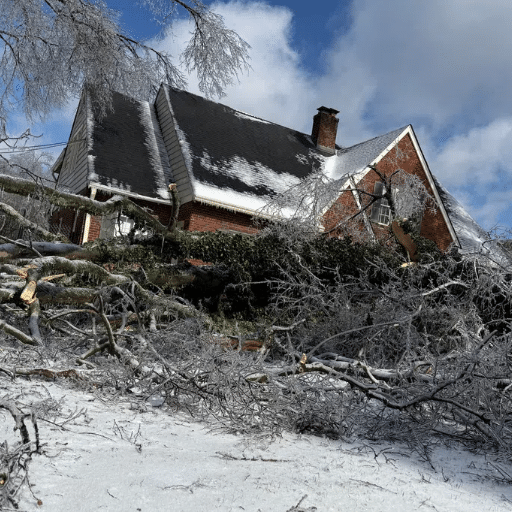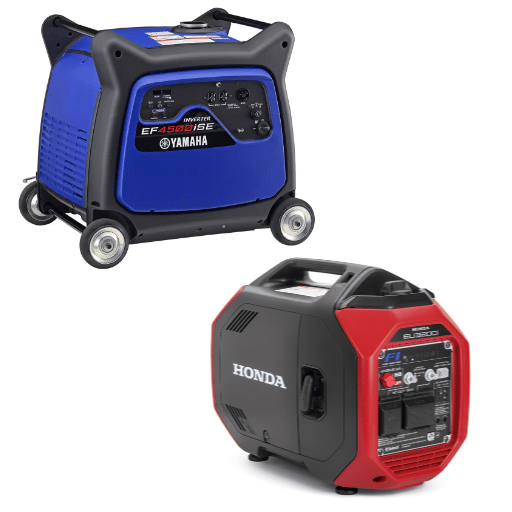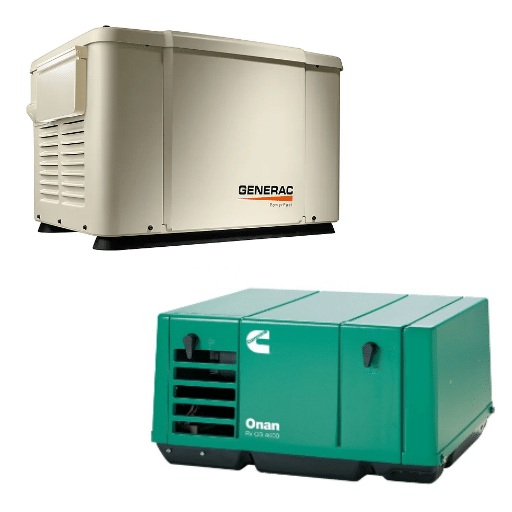In today’s world, where power outages can happen unexpectedly, having a reliable whole-house generator is crucial for maintaining comfort and safety in your home. This blog post aims to guide you through selecting the ideal generator for your needs and finding the best dealer and installer in your area. We’ll explore key factors to consider when choosing a generator, such as power output, fuel type, and brand reputation, and provide tips on evaluating dealers’ service and support quality. Additionally, we’ll share detailed insights on installation processes to ensure your generator is set up for optimal performance. By the end of this article, you’ll be equipped with the knowledge and confidence to make an informed decision about your generator investment.
How to Choose the Best Generator Dealer in Your Area?
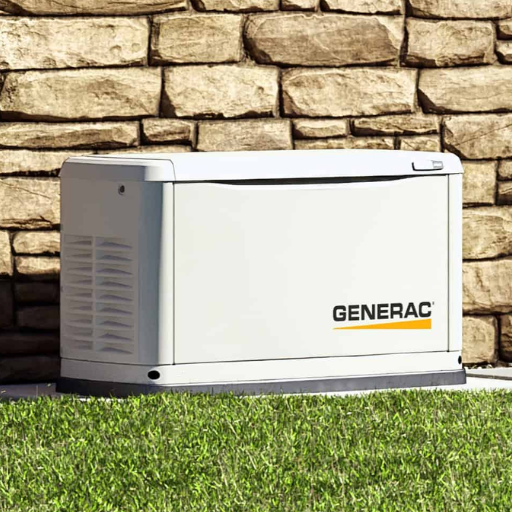
When choosing the best generator dealer in your area, research their reputation and experience. Look for dealers authorized by well-known generator brands, often indicating a high service and expertise standard. Check customer reviews and testimonials to gauge satisfaction levels regarding the dealer’s support and reliability. Additionally, consider if they offer comprehensive services, including delivery, installation, and maintenance. It’s also wise to ensure they provide strong after-sales support, such as warranties and technical assistance. Finally, compare pricing and financing options to ensure you get the best value for your investment.
What to Look for in a Generator Installer?
When selecting a generator installer, prioritize those who are certified and experienced. Certification ensures the installer understands industry standards and safety protocols. Check if the installer has experience working with the specific generator brand and model you plan to purchase, as familiarity can lead to a more efficient installation. Evaluate their reputation through online reviews, paying close attention to comments about professionalism, punctuality, and communication skills. Ensure the installer offers a comprehensive service package, including site assessment, detailed planning, installation, and generator testing. Additionally, post-installation solid support, such as maintenance services and troubleshooting, is crucial for ensuring the long-term reliability of your generator system.
How Can a Dealer Help You Size Your Generator?
When I approached a dealer to help size my generator, they started by evaluating my power needs and understanding the specifics of my home or business. This included checking the wattage requirements for essential appliances and systems I wanted to support during an outage. The dealer then considered factors like starting watts versus running watts to ensure the generator could handle initial power surges. They also provided insights from manufacturers’ specifications and often utilized online tools or software for precise calculation of my total power requirement. Moreover, the dealer offered personalized recommendations, suggesting brands and models that met my needs effectively while keeping my budget in mind. Their expertise made the process seamless, ensuring I chose an efficient and cost-effective generator.
Why is a Local Generator Dealer Important?
A local generator dealer is necessary because they offer personalized service and expertise tailored to your regional needs. They understand the local climate and power grid conditions, which can affect generator performance. Local dealers provide onsite evaluations to ensure proper sizing and installation, leading to increased efficiency and reliability. They also have quick access to parts and provide prompt maintenance and support services, reducing downtime in case of issues. Technical parameters they might consider include wattage requirements (both starting and running watts), fuel type (gasoline, diesel, propane), generator capacity, noise levels, and compliance with local regulations. A local dealer’s firsthand experience ensures they can offer solutions aligned with your unique requirements, promoting peace of mind and long-term satisfaction.
What Are the Benefits of a Whole House Generator?
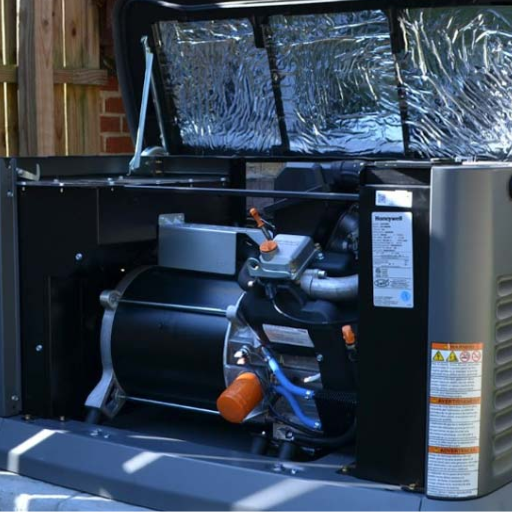
Having a whole-house generator offers several key benefits that enhance comfort and security. Firstly, it ensures uninterrupted power supply during outages, preventing disruptions in daily activities and safeguarding essential appliances, such as refrigerators and HVAC systems. This can be particularly vital in areas prone to severe weather conditions or unstable power grids. Additionally, whole-house generators add significant value to a property by offering a reliable backup power source, which can be an appealing feature for potential buyers. They operate automatically, providing seamless transition during a power failure and eliminating the need for manual setup. Furthermore, whole-house generators are typically designed to be fuel-efficient and low maintenance.
How Does a Whole House Generator Work?
A whole house generator functions by automatically detecting power disruptions and seamlessly engaging to power your home’s electrical system. When an outage occurs, the generator’s sensor recognizes the loss of power and signals the generator to start. The generator’s engine powers an alternator that produces electricity. This electricity is then channeled through a transfer switch, which disconnects your home from the main utility line and supplies power to your household circuits. Once the utility power is restored, the transfer switch reverts the supply to the primary grid, and the generator shuts down, ready for the next emergency. Efficiency in fuel consumption and automatic operation make these generators reliable for households seeking uninterrupted power supply.
Can a Whole House Generator Handle Power Outages?
Yes, a whole-house generator can effectively handle power outages. These generators are designed to kick in automatically during an outage, ensuring that all essential systems in my home continue to function seamlessly. They can power numerous appliances and systems, from lighting and refrigerators to heating and cooling, ensuring comfort and safety during a loss of electricity. Moreover, these generators’ automation and fuel efficiency make them a practical and reliable solution for maintaining normalcy during unforeseen power interruptions.
What is the Cost of Installing a Whole House Generator?
The cost of installing a whole-house generator can vary significantly depending on several factors, such as the generator’s size, the installation’s complexity, and local labor rates. Based on information from top sources, the average expense may range from $5,000 to $10,000 or more, including the purchase of the generator and the installation costs. I found that larger generators capable of powering more appliances tend to be on the higher end of this spectrum. In addition, specific installations might require additional electrical work or permits, which could further increase expenses. It’s essential for me to get quotes from multiple contractors to ensure a competitive price and to make an informed decision that best suits my household’s needs.
What Are the Top Brands for Home Generators?
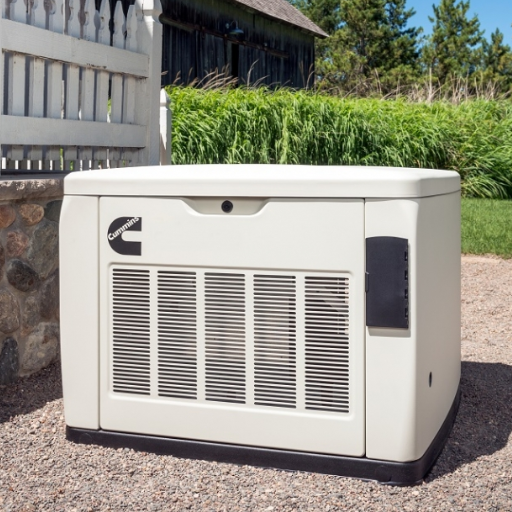
When considering the top brands for home generators, several highly regarded names stand out based on performance, reliability, and customer satisfaction. Generac is often at the forefront, known for its durable and cost-effective models that cater to a wide range of power needs. Kohler is another reputable brand that offers robust generators renowned for their long-lasting engines and excellent customer support. Cummins is also a leader in the generator industry, providing high-quality systems with advanced features and trustworthy performance. Lastly, Briggs & Stratton offers a selection of home standby generators that are both efficient and affordable, making them a popular choice among homeowners. Each of these brands provides a variety of models that can cater to different power requirements, ensuring a suitable option for nearly every situation.
Is a Generac Generator Right for You?
When determining if a Generac generator is the right choice for your home, it’s essential to consider various factors highlighted by top resources. Generac is frequently praised for its wide range of models that effectively meet varying power requirements, from small portable units to large standby systems. One of the primary advantages is their affordability and comprehensive customer support, making them a popular choice for homeowners seeking reliability at a reasonable cost. Many users appreciate the easy-to-use control systems and integration with innovative technology, allowing for seamless monitoring and troubleshooting. Installation flexibility is another key benefit, as Generac generators can often be set up to accommodate diverse property sizes and layouts. However, comparing these attributes with your specific power needs, budget, and maintenance capabilities is crucial to ensure that investing in a Generac generator aligns with your expectations and requirements.
How Does a Cummins Home Generator Compare?
Compared to other brands, Cummins home generators often excel in durability and performance. Renowned for their robust build and advanced engineering, Cummins generators are designed to deliver reliable power, even in harsh conditions. I appreciate that Cummins units offer a range of sizes, catering to various power needs, from more minor residential requirements to larger estates. Their engines are recognized for efficiency and long service life, which can result in cost savings on operation and maintenance over time. Additionally, Cummins provides strong customer support and comprehensive warranties, adding an extra layer of peace of mind. Weighing these factors against what I learned about other options, I see Cummins as a compelling choice, particularly if long-term reliability and durability are my top priorities.
What Makes Kohler Generators Stand Out?
Kohler generators stand out due to their exceptional quality and advanced features, designed to ensure dependable power when you need it most. Known for their precise engineering, Kohler units are manufactured to deliver steady and robust power output, preventing fluctuations that could potentially harm electronic devices. A significant technical parameter that highlights this is their industry-leading voltage and frequency regulation, which typically maintains a variance of just +/-1%. This precision is beneficial for sensitive high-tech equipment in your home.
Additionally, Kohler generators are equipped with user-friendly digital monitoring systems, which provide real-time data and alerts, ensuring that users can easily manage their power needs. Furthermore, their corrosion-proof enclosures are built to withstand extreme weather conditions, making them a durable option in even the most challenging environments. This durability, combined with their quiet operation and comprehensive warranty offerings, positions Kohler as a trustworthy choice for those prioritizing reliability and technological sophistication in their home power solutions.
How to Maintain Your Home Standby Generator?

Regular maintenance of your home standby generator is crucial to ensure it operates efficiently and reliably when needed. Start by conducting bi-annual inspections to check for any wear or damage. Replace worn-out parts and keep the unit clean by removing debris and ensuring proper ventilation. It’s vital to check the oil and coolant levels regularly, topping them up as needed, and to change the oil and filters every 200 hours of use or at least once a year. Test the battery periodically and clean the terminals to prevent corrosion, ensuring it holds a charge. Additionally, run the system under load once a month to verify its proper functioning and to keep all parts lubricated. Lastly, consult the manufacturer’s manual for specific service intervals and adhere to their guidelines to prolong the generator’s lifespan and maintain optimal performance.
What is the Importance of Yearly Maintenance?
Yearly maintenance of your home standby generator is essential to ensure its reliability and longevity. Regularly servicing the generator prevents unexpected breakdowns and costly repairs. It allows technicians to inspect and address minor issues before they escalate into major problems. Routine checks ensure that components like the engine, fuel system, and electrical connections are functioning optimally, enhancing the generator’s efficiency. Proper maintenance also ensures safety by identifying potential hazards such as leaks or faulty wiring. Furthermore, keeping the generator in peak condition helps maintain compliance with warranty requirements, protecting your investment. Ultimately, comprehensive annual checks contribute significantly to the generator’s ability to provide uninterrupted power during outages, safeguarding your home and comfort.
When Should You Change the Oil in Your Generator?
Changing the oil in my generator is crucial for its optimal performance and longevity. Generally, it’s recommended to change the oil every 100 to 200 hours of use, depending on the manufacturer’s guidelines and the specific model. For my home standby generator, I perform an oil change after every 200 hours or at least once a year, whichever comes first. I make sure to check the oil level regularly and top it up as needed. Keeping the oil clean and fresh helps maintain the engine’s health, prevents wear and tear, and ensures that the generator runs smoothly and efficiently, especially during power outages when reliability is essential.
How to Ensure Your Generator Installed is Running Smoothly?
To ensure my installed generator runs smoothly, I begin by scheduling regular maintenance, following the manufacturer’s guidelines. I perform routine checks and replace components such as air filters, spark plugs, and fuel filters as needed to maintain efficiency. Keeping the generator clean is vital, so I make sure to remove any dust, dirt, or debris that might accumulate on the surface or ventilation areas. Regularly inspecting the fuel system helps me avoid problems caused by stale fuel. I also monitor the battery and coolant levels to ensure they are always at optimal levels. Lastly, I test the generator periodically to ensure that it starts easily and operates correctly, giving me confidence that it will perform reliably during an outage.
How to Install a Backup Power System?
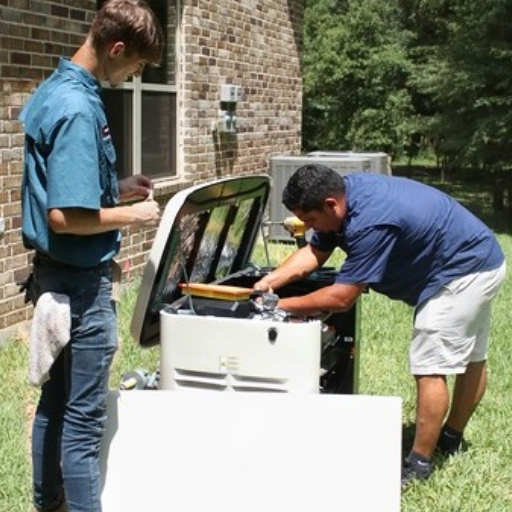
Installing a backup power system involves careful planning and adherence to safety protocols to ensure a reliable and efficient system. Begin by selecting the appropriate generator size based on your power needs, considering both critical and additional household devices you wish to run during an outage. Consult with a professional electrician to assess your home’s electrical capacity and determine the right location for installation, usually away from doors or windows to vent exhaust safely. Next, secure any necessary permits required by local regulations. After obtaining permits, prepare the installation site by setting a firm, level surface, typically a concrete pad, to support the generator’s weight. The electrician will then handle connecting the generator to your home’s electrical system, usually via a transfer switch, which allows for safe transition between grid power and generator power. Once installed, it’s essential to perform a comprehensive testing to confirm the backup system functions properly, ensuring peace of mind during unexpected power outages.
What are the Steps for a Successful Generator Installation?
- Assess Your Power Needs: To successfully install a generator, I first evaluate my power needs by listing the essential appliances and systems I want to keep running during an outage. This helps in selecting the right generator size.
- Select a Suitable Location: Next, I choose a location for the generator that is safe, meeting local requirements for distance from doors and windows, ensuring proper exhaust venting.
- Obtain Necessary Permits: I check with local authorities to obtain any required permits for the installation. This step is crucial for compliance and avoiding future issues.
- Prepare the Installation Site: I then prepare the site, ensuring it’s level and stable, often using a concrete pad to support the generator’s weight, which helps prevent operational issues.
- Hire a Professional Electrician: Engaging a licensed electrician, I have them connect the generator to my home’s electrical system using a transfer switch, which ensures a safe and effective shift between the grid and generator power.
- Conduct Comprehensive Testing: Finally, I perform thorough testing to ensure the system operates smoothly, giving me confidence that it will function as expected during an actual power outage.
Do You Need an Electrician for Installation?
Yes, hiring an electrician for generator installation is essential for several reasons. Firstly, a professional electrician ensures that the generator is connected safely to my home’s electrical system, reducing the risk of electrical hazards. They also have the expertise to manage the installation of a transfer switch, which is critical for a seamless transition between utility power and generator power. Additionally, a licensed electrician is familiar with local codes and regulations, ensuring compliance and avoiding potential fines or operational issues. Overall, engaging an electrician offers peace of mind, knowing the installation is done correctly and safely.
How to Integrate a Transfer Switch?
To integrate a transfer switch effectively, I start by selecting the appropriate type for my needs, typically either a manual or automatic transfer switch. Manual transfer switches require me to flip a switch when the power goes out, while automatic ones do this automatically. Once I’ve chosen the right switch, I ensure the site for the installation is prepared, involving a clear area close to my main electrical panel. I usually hire a licensed electrician, as they have the expertise to connect the switch properly to my home’s electrical system and ensure it’s compliant with all safety standards and codes. The electrician will then link the generator to the transfer switch, prioritizing safe and efficient power transfer during outages. Finally, I test the entire setup to confirm its smooth operation, providing assurance that I’m ready for any power outage.
References
-
Generac Dealer Locator – Helps you find sales and service dealers for Generac home standby generators, ensuring reliable backup power solutions.
-
Kohler Generator Dealer Locator – Assists in finding the nearest authorized Kohler dealer to help you select and maintain the perfect generator for your home.
-
Yelp’s Best Generator Installation Near Me – Lists top-rated generator installation services based on customer reviews, including options like Tri-County Electric Service and Rossmann Electric.
Frequently Asked Questions (FAQ)
Q: How can I find the best whole house generator dealer near me?
A: You can use the generator dealer locator tool available online to find a dealer near you. Simply enter your location, and the tool will help you find your nearest Cummins dealer or other local dealers offering generator solutions.
Q: What should I consider when choosing a whole home generator installer?
A: When choosing a whole home generator installer, consider factors such as their experience, customer reviews, and whether they offer special financing on a home generator. Additionally, a high volume dealer might provide more competitive pricing and better support.
Q: How do I size and price my generator and installation?
A: A dealer can help you size and price your generator by assessing your home’s electrical needs and providing options that fit your budget. They will take into account the size of your home and the essential appliances you want to power.
Q: What are the benefits of a liquid cooled generator?
A: Liquid cooled generators offer better efficiency and durability compared to air-cooled models. They are ideal for high-demand applications and can provide a more reliable backup during utility power outages.
Q: Can I use a portable generator for my whole home?
A: While a portable generator can provide temporary power, it might not be sufficient for a whole home setup. For complete home coverage, it’s recommended to invest in a dedicated whole house generator.
Q: How often should I perform an oil change on my generator?
A: Regular maintenance, including oil changes, is crucial for the optimal performance of your generator. Generally, an oil change is recommended every 100-200 hours of operation, but you should consult your dealer or the manufacturer’s guidelines for specific advice.
Q: What fuel options are available for whole house generators?
A: Whole house generators can run on various fuel types, including propane, natural gas, and diesel. Your choice will depend on availability, cost, and your specific power needs.
Q: How does a generator dealer help with electrical work?
A: A generator dealer not only assists with the purchase and installation of your new generator but also ensures that all necessary electrical work is completed safely and in compliance with local codes.
Q: Will I receive updates on my generator installation process?
A: Yes, reputable dealers often provide updates on the installation process. Be sure to check your inbox for any communication from your dealer regarding the progress of your generator installation.



